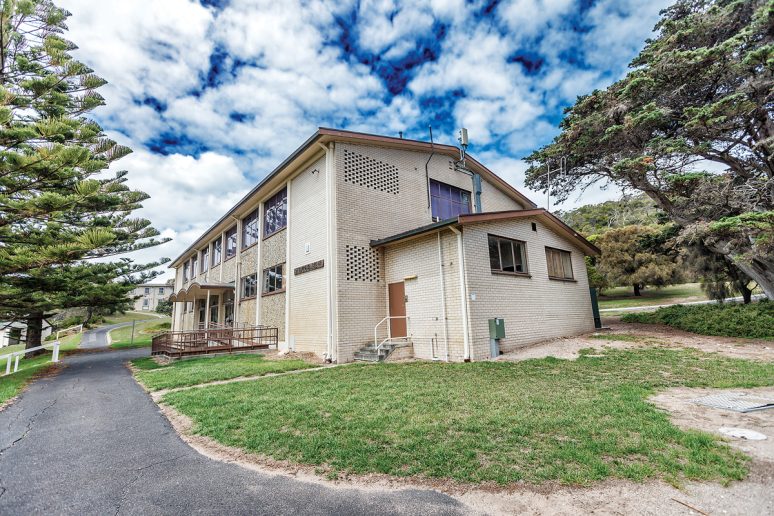After 18 years and several name changes work has been scheduled to start next year on a university level research centre at Point Nepean.
Once billed as a centre for marine education, Melbourne and Monash universities have now announced their backing for the Point Nepean Research and Education Field Station – Home of the National Centre for Coasts, Environment and Climate.
The federal government has contributed $17 million towards the centre and the universities $8m.
The universities say they are “finalising the designs to progress planning approvals and other regulatory processes” for the field station, including a new building.
“While project timelines have been amended slightly, we hope to begin construction in 2024.”
In June 2021, the universities released the findings of a survey (85 “community respondents”) and said “priorities developed” as a result included using the heritage building Badcoe Hall and preserving its external facade.
A new building to house facilities unable to be accommodated inside Badcoe Hall would be “of a size, position and height that blends with its surrounding environment [and] … designed in keeping with the sustainability aspirations of the Point Nepean National Park”.
The universities issued a joint statement saying they had decided to make up the shortfall after the Labor federal government cut $8m from the $25m promised by the previous Liberal/Nationals coalition.
“This investment signals the universities’ commitment to delivering this world-class, interdisciplinary science research and education facility, highlighting the field station’s significance not only to the universities, but also to the Point Nepean community,” the statement said.
The “focus areas” of the field station include “research into dune management, coastal erosion and inundation, marine ecosystem preservation, pollution control, biodiversity conservation to provide opportunities to secure threatened flora and fauna, habitat restoration and management of Indigenous and settler heritage sites at risk of sea-level rise”.
The first plan for a research centre at Pt Nepean was made in 2006 by then Flinders MP Greg Hunt, who said it would be established by the Tasmanian-based Australian Maritime College.
Hunt predicted it would become “an international centre in the war against biosecurity threats” with “scores of undergraduate students … living and working at Point Nepean within months”. The maritime college’s plans never eventuated.
Hunt’s successor, Liberal Zoe McKenzie, elected in to represent Flinders at the May 2022 election, said the announcement by the universities “to fill the funding deficit after the Albanese Labor Government ripped $8million out of the project” had put the National Centre for Coasts, Environment and Climate (NCCEC) “back on track”.
McKenzie said the universities “should be applauded for their dedication to deliver this world class interdisciplinary research and education facility on the Mornington Peninsula”.
Monash University chancellor Simon McKeon has been a long time advocate for the research centre, initially through his position as head of the government-appointed Pt Nepean Community Trust. In October 2022 Monash announced that Hunt, health and aged care minister in the Morrison government, had been appointed as the foundation chair of the Turner Institute for Brain and Mental Health’s advisory council.
But not all advocates of an educational and research centre at Pt Nepean are as welcoming of the new proposal.
Kate Baillieu, a former member of several Pt Nepean advisory committees, said it was “encouraging to hear [after 16 years] that the universities are at last investing some of their own money”.
“However, I’m concerned that the announcement is all about delivering a ‘facility’ and not about delivering programs,” she said.
“The last thing that the Quarantine Station needs is a costly new building.
“It would make better sense to adaptively reuse one or more of the heritage buildings and, I suggest, architecture students could be usefully engaged in such a project.
“Any surplus funds should be invested in developing ongoing, sustainable programs.”


